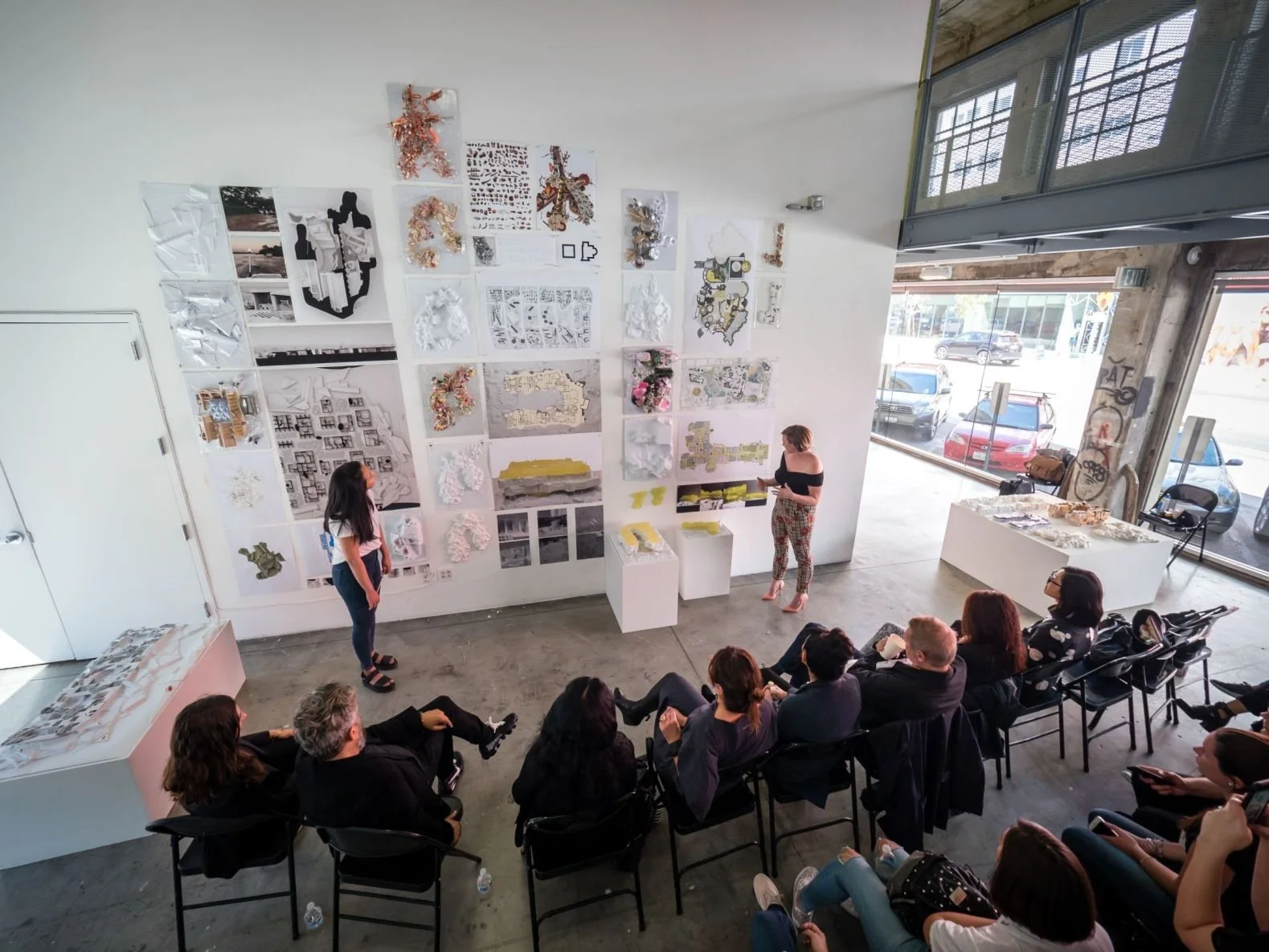Dealing with Public Speaking
I, as an unspoken rule to myself, do not like speaking in public. I never have. Tell a lie, I take pride in the fact that when I was in primary school, I was very happy to act in school plays in front of students, teachers and parents (in the lead role of course).
Since then, however - a mere 20+ years ago - I have avoided public speaking at all costs. To be fair, there haven't been many opportunities beyond the occasional group presentation in secondary school, but you’d best believe, that if they did arise, you would not have seen me volunteering. In comes however, studying Architecture at University.
If you are a current or past architecture student then you know already know about Design Reviews. If, however you are reading this as a future architecture student and are not yet aware of the absolute joys of a review, let me fill you in.
Architecture reviews, usually reserved for your Studio project module, are basically an opportunity for you to present your design and get feedback. When I was a student, it was in front of about 20+ students and my tutor, but I am sure this varies between universities.
I remember being more worried about making sure I was able to get my words out about my work, rather than if the work I was speaking about was an embarrassment. (Trust me, I have definitely stood in front of some my own shockingly bad work)
This, unfortunately, is still a big issue for me.
An issue I was reminded of working as a Tutor and having to prepare for a 5-minute presentation. These ‘Tutor Talks’ focus on a specific theme and are presented by the studio tutors to the cohort of approximately 100 students and the other tutors. Some of these tutors I might add, were my own tutors when I was a student, so it starts to feel a little like a crit. It isn’t and they are now my colleagues, not waiting to give me feedback but it is very easy to feel that way when you are standing in the university where you studied, in front of the tutors who taught you.
This five-minute presentation was the first time in over 18 months (probably since my last Tutor Talk) that I had spoken in front of that many people so I was not, let’s say calm. It took up so much of my mental headspace for at least the 7 days before. For a 5-minute presentation.
This is less than 1% of your day by the way, if you were interested.
Now, if this skill was just needed for my job as an Architecture Tutor involving maybe 5, 5-minute presentations a year, then I could probably just about get over this.
Public Speaking however, is not a skill restricted to tutoring. As an Architect, I need it when presenting to clients, during design team reviews and meetings, and, to be honest, in unexpected situations as well. (Especially as I creep more and more out of my comfort zone). So I know I need to
1. Get better at it and,
2. Not avoid it at all costs.
I know that I am not alone in this. I ran a poll on my Instagram Story last week and 25% of my followers, made up of mostly architecture students at varying stages of their journey, ‘hated it with a passion’ - That’s usually where I am too.
So how to deal with it? (Because unfortunately, you cannot just hide and avoid it for the rest of your life.)
Well, I can only share what I did and how well (or not) it worked.
So about a week and a half before, I was starting to get anxious about the presentation and realised, I had not even planned it. There were no slides, no words, literally nothing at that point to be nervous about. So I started by sorting that out.
I planned the presentation like I would a review at university. Each slide had enough writing or prompts to keep me going if my brain went blank. So -
No.1 Plan and Plan properly
Once planned, I practiced. An example for you and how well it works. As an Architectural Assistant in the office, for the first few months answering the phone felt like an insanely big deal. Who was going to be on the other side? Who was listening to how I dealt with it in the office? Very common but unneccessary fears. Now however, answering the phone semi-regularly, it’s not a big deal at all.
A additional tip for you - I found that practicing in conditions as possible to the real thing is essential. For this Tutor Talk, I could sit and practice at my desk, no problem, but as soon as I got up and pretended that I was actually in the space with my powerpoint in front of 100+ people, the nerves crept in (or slapped me in the face more like). I also practiced by casually presenting to my partner, just using my phone and sitting on the sofa, but it meant that it felt more like a conversation.
No. 2 Practice until comfortable
Beyond planning and practicing, everything else came down to mindset. Any time nerves crept in, I would swat them away telling myself:
‘Get a grip, its only 5 minutes’
‘What is the point of worrying?’
‘You have done this before’,
‘You are able to speak in your daily life, why would this be any different?’
Never underestimate the power of positive thinking and being nice to yourself.
I also say, without shame, that I am a big lover of motivational quotes.
One of my favourites, originally from Babe Ruth but I personally know it from Cinderella Story (Excellent film)
‘Never let the fear of striking out keep you from playing the game’
and now thinking about it, also from a childhood favourite movie, The Princess Diaries and objectively more relevant to the fear of public speaking -
“Courage is not the absence of fear but rather the judgement that something is more important than fear”
Both the positive thinking and the motivational quotes were crucial because make no mistake. I, on many occasions throughout that week, only for split seconds at a time, tried to think of ways to get out of the Tutor Talk. I could have prepped for weeks and practiced for months but at the end of the day, I still had to stand in front of over 100 people and speak.
No. 3 Mindset is a powerful thing
That all being said, I was still nervous. I probably talked too fast, maybe messed up a word or two but I did it and for that I am proud.
I asked for some feedback from some of the other Tutors (they found it interesting and thought I presented well - Thanks guys) but when it comes down to it, I just need more experience in uncomfortable situations. The more you get used to being in them, the more comfortable you’ll be.
Thank you for reading! I hope you found this weeks issue helpful to share and please reply or message me on any of the social handles below with your thoughts or any questions you have.
Look out for next week's post on the difference in the Architecture Journeys of those around you.
Signing off,
Aliya







